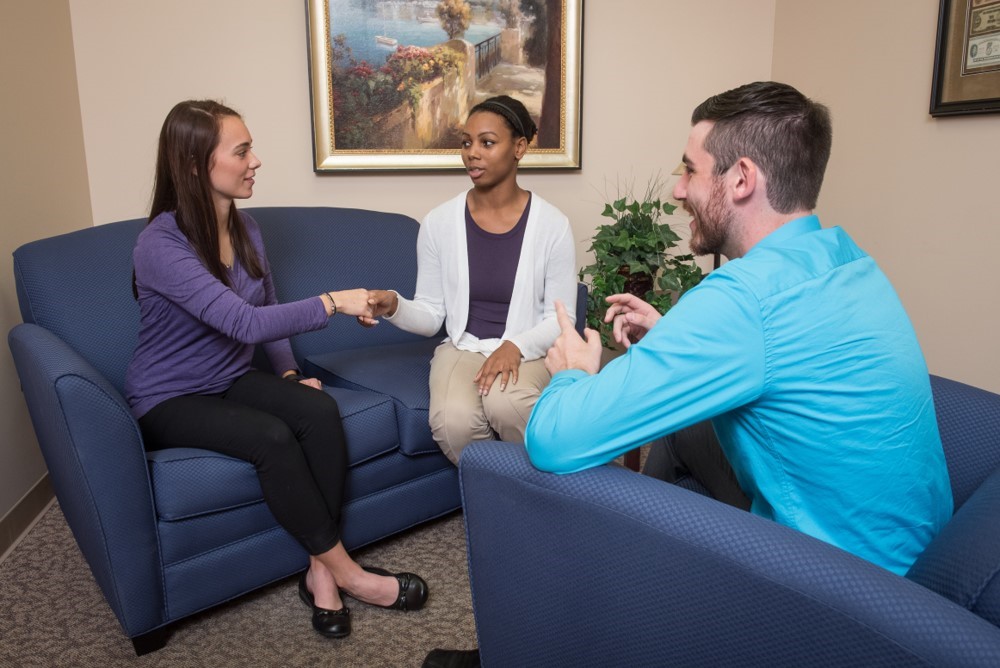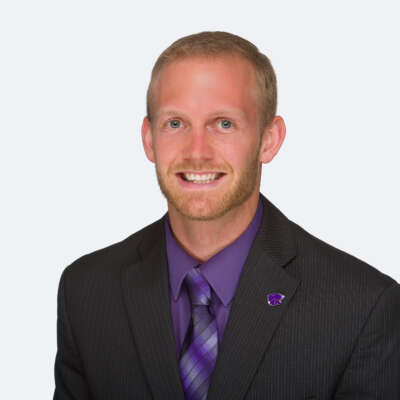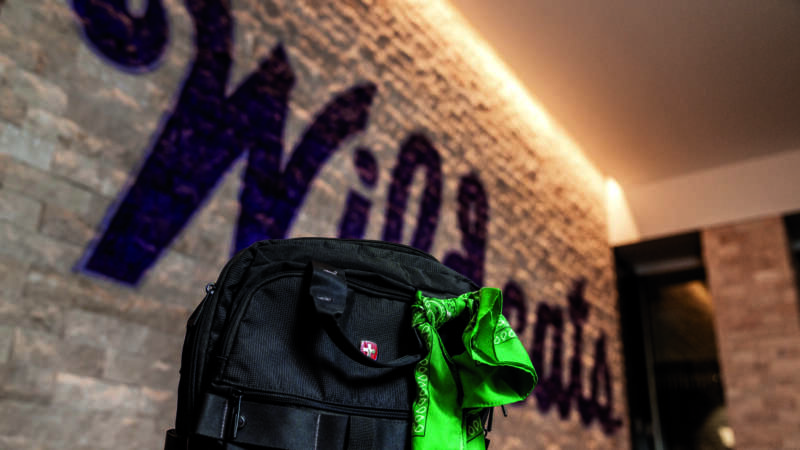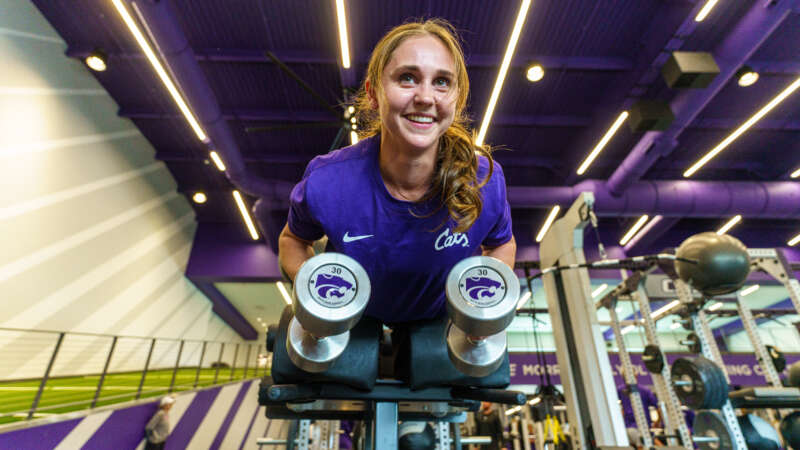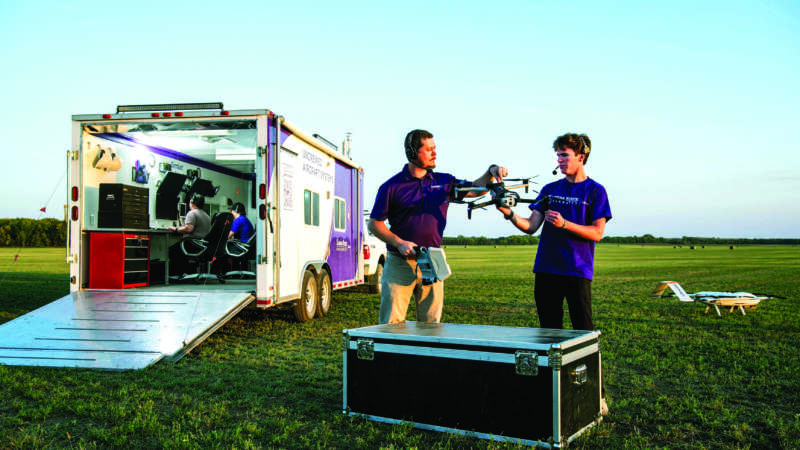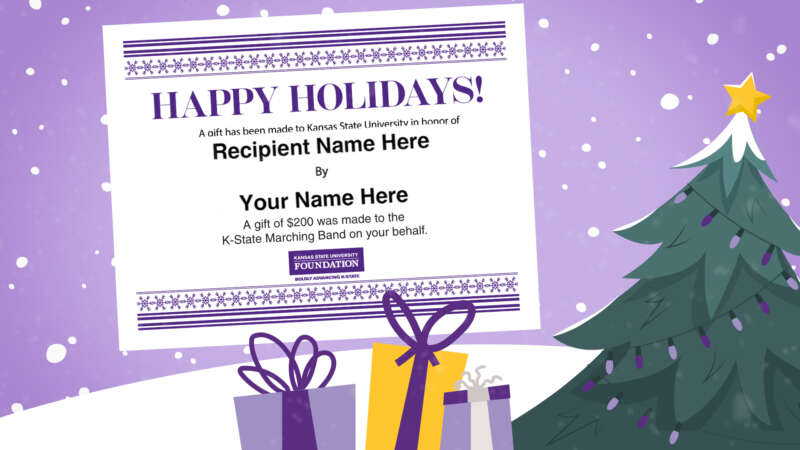K-State’s Conflict Resolution Programs lead the way as one of the first programs in the nation to provide students with the combined focus of conflict resolution and trauma studies
A little over 15 years ago, Kansas State University professors Terrie McCants, a conflict resolution specialist, and Dr. Briana Goff, an expert trauma researcher and practitioner, came together to develop a program that studied both conflict resolution and trauma studies. Immediately, their program made advancements in the peace and conflict studies field and gained traction throughout the world.
The Conflict Resolution Programs are a part of the College of Health and Human Sciences in the Department of Applied Human Sciences. K-State offers one of the first programs in the nation to combine a focus of conflict and trauma studies into a single academic discipline.
“Trauma and conflict work closely together, as each can be the cause and the result of the other,” said Dr. Brett Mallon, program chair and instructor in conflict resolution. “Experiencing destructive conflict can be a very traumatic experience, which complicates any attempted conflict resolution processes. Likewise, traumatic events can also cause conflicts in our lives as we try to navigate that trauma and its ripple effect on our lives and our relationships. Thus, as we seek to address and heal from trauma, and also develop effective conflict resolution strategies, it is critical to recognize conflict and trauma as symbiotic parts of a broader whole.”
Undergraduate students can explore the foundations of conflict and peace through the Conflict Resolution Minor. This newly launched minor is a result of collaboration from six academic programs on campus. Another long-time professor, Dr. David Thompson, developed a Professional Certificate in Conflict Resolution. This certificate provides a way for professionals to learn more about the foundations of conflict resolution through a non-academic credit option. Additionally, there are two other certificate options, one at the undergraduate level and one at the graduate level. These certificates give students the opportunity to apply skills in both conflict resolution and transformation.
While conflict is generally associated with negativity, the Conflict Resolution Programs seek to express that conflict can help people develop relationships with others. The programs explore conflict, not only on the personal level, but also at the group, organizational and societal levels. Within the programs, students learn about the sources of conflict development and practice communication skills to learn how to constructively navigate conflict.
“A core understanding we work with in our program is the recognition that conflict can be one of the most useful experiences in our lives,” said Mallon. “Effective conflict resolution gives us the ability to not only learn more about our conflict partners, but also ourselves as well. Our program provides students the opportunity to better understand these broader structural conflicts in their lives, but also equips them with the intervention skills and strategies to make a meaningful and positive impact on those conflicts.”
An important part of the Conflict Resolution Programs is its effectiveness for learners at any stage of life. Because conflict is dependent on specific situations, people often experience different types of conflict throughout their lives. The programs help students apply material directly to their own life, regardless of age or profession. The Professional Certificate in Conflict Resolution is particularly important for life-long learners because it allows students who are not pursing a degree to study conflict resolution. The flexibility of the certificate reaches a diverse array of learners, which makes classroom discussion and learning from other students especially impactful.
“Direct applicability is at the forefront of how we approach our instruction. Our aim is to build a continually expanding community of peacebuilders that are engaged in changing their communities (and personal lives) for the better,” said Mallon. “As we continue to grow and expand our course offerings, we hope to develop a unique range of options that are targeting the needs of our society.”
On a professional level, the soft skills gained through communication training helps students excel in the workplace and advance their careers. Students are also able to apply the curriculum to their personal lives by learning to view highly emotional conflicts as an opportunity for growth.
A student who took the Core Conflict Resolution course with Dr. Thompson said, “Your class made me think and want to learn. The course assignments all had one differentiator — they depended on a real-life conflict from our lives, not scenarios set forth in lectures or a textbook. That was huge for me. They enabled me to draw direct parallels from course learning to something that actually happened in my own life.”
Philanthropic support makes many student experiences possible. In the past, the programs have offered study abroad and service-learning opportunities in world conflict zones, such as Northern Ireland and South Africa, where students can apply first-hand what they are learning within the classroom.
“I originally stumbled into the field of Peace and Conflict Studies through a study abroad trip from the Conflict Resolution Program here at K-State. That trip, and my subsequent deep dive into the program during my undergrad years at K-State completely changed the course of my life,” said Mallon. “Without the philanthropic support and donations our program has received to help develop and sustain these types of opportunities, I, and so many other students to come through our program over the years, would have never had their eyes opened to the field of Peace and Conflict Studies.”
For more information on this program and ways to support, please contact Jeff Haug, Director of Development for the College of Health & Human Sciences, at jeffh@ksufoundation.org or 785-775-2061.
Originally published in May 2021.
